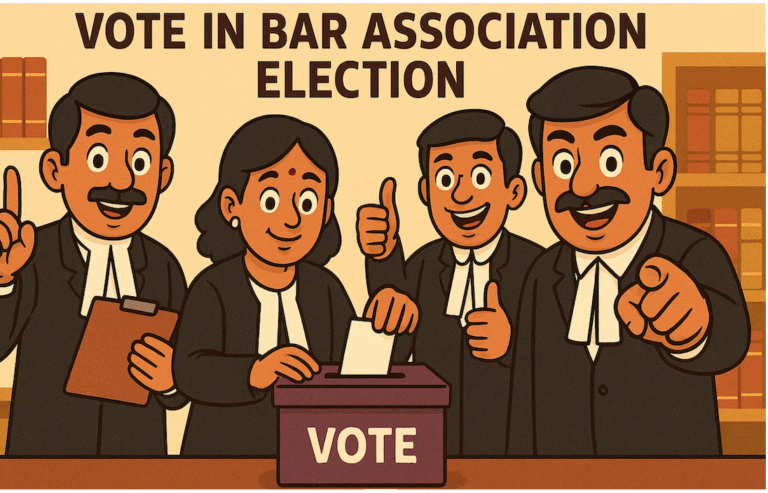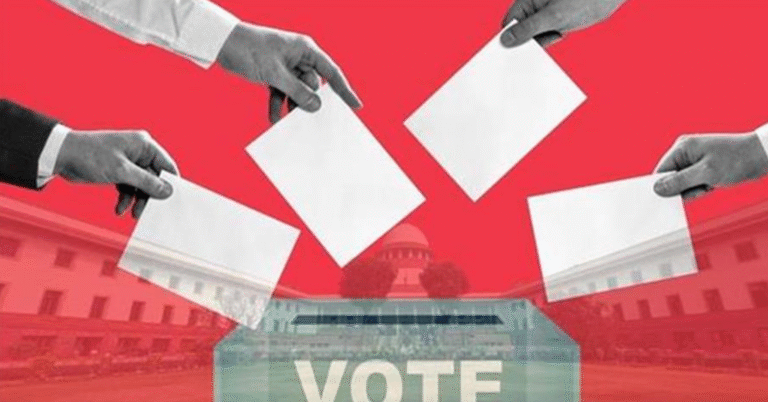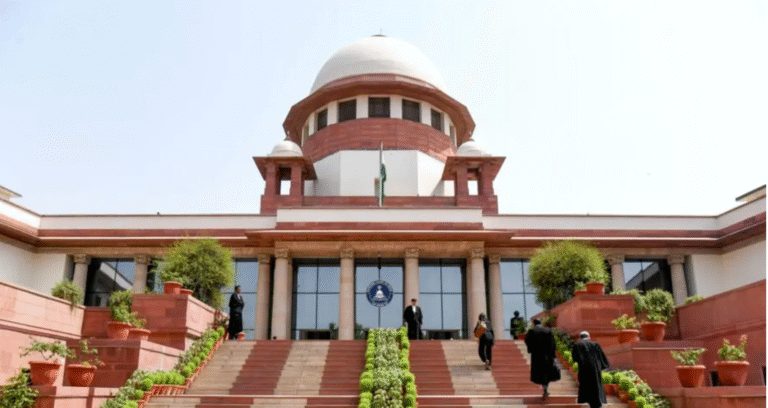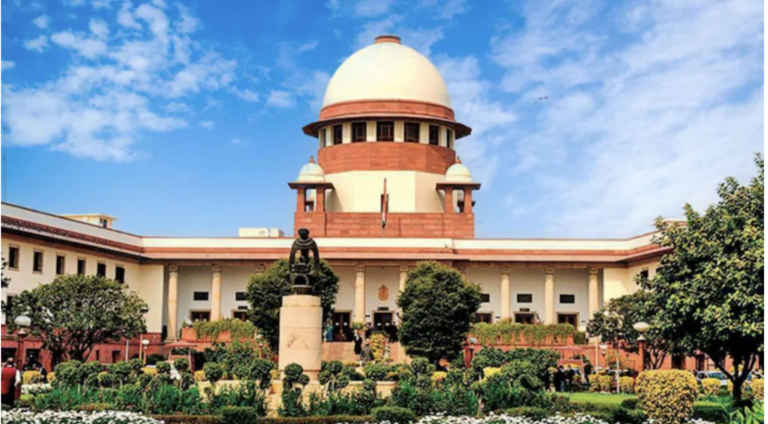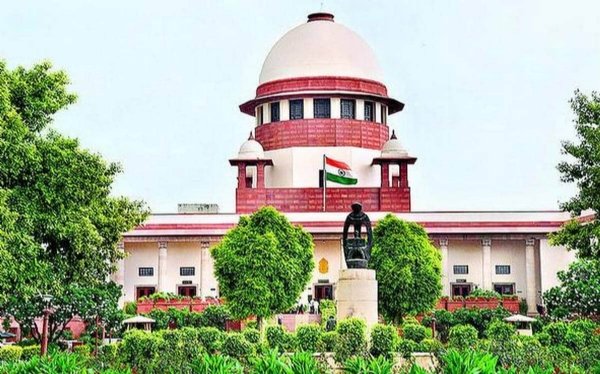High Court Orders Perjury Probe, Suspension of Judge for Forged Records

HC Says: “No One Above Law. The person is unfit to be a Judge or to remain on any post even for a second if allegations of perjury are true” [Mohd. Nazer v. Union Territory, MANU/KR/3881/2022]
Judicial Revolution in India: Indian Bar Association’s Nationwide People’s Movement Against Judicial Corruption and Misconduct in the Judiciary for Transparency, Accountability, and a Corruption-Free Justice System
An even stronger case, based on solid and conclusive evidence, has been filed against Bombay High Court Judge Smt. Revathi Mohite-Dere. In this matter, the National President of the Indian Bar Association, Advocate Nilesh Ojha, has sought similar reliefs.
This case has now been scheduled for hearing before a Five-Judge Constitution Bench of the Bombay High Court. It is being viewed as a proceeding that will not only test the transparency and accountability of the judiciary but also set a precedent for judicial accountability in the future.
In addition, Advocate Vijay Kurle has also filed a similar case against Bombay High Court Judge Shri G. S. Kulkarni. This petition too contains allegations of judicial misconduct, tampering of records, and serious irregularities. The matter is set to be heard before a Special Bench of the Bombay High Court.
Both these cases have created a major stir in judicial circles. Legal experts opine that if conclusive findings emerge against the Judges in these matters, it would mark a historic milestone in advancing judicial accountability in the Indian judiciary.
Mumbai: In a landmark and unprecedented ruling, the High Court has directed initiation of a perjury probe and ordered the suspension of a sitting Chief Judicial Magistrate accused of forging court records to harass a litigant who had lodged a complaint against him.
The case, titled Mohd. Nazer v. Union Territory [MANU/KR/3881/2022], has sent shockwaves across judicial corridors, reaffirming that the rule of law applies equally to the judiciary and no judge or magistrate can act with impunity. Acting under Section 340 Cr.P.C., the Court not only ordered a full-fledged criminal enquiry into the allegations of perjury but also directed that the officer be suspended forthwith, pending enquiry. The Court simultaneously issued a show-cause notice and impleaded the Magistrate as a party-respondent, placing him squarely in the dock.
Court’s Stern Observations
The Hon’ble Bench delivered a scathing rebuke, underscoring that judicial integrity is the bedrock of the justice system. In words that will resonate across the legal fraternity, the Court observed:
“If the allegations against the Chief Judicial Magistrate are true, it is unfortunate and unheard of. The immense faith of the citizens of this country in the Indian Judiciary itself is the backbone of our judicial system. Judicial officers must be above board, and their pens—powerful as they are—should be used with caution, without fear or favour. If the allegation raised against the Magistrate is true, the said Magistrate is not fit to continue in any position, even for a second.”
The Court further held that in order to preserve public confidence in the judiciary, the disciplinary authority must place the officer under suspension pending enquiry. The Bench stressed that “even if a person is occupying the post of Magistrate or Judge, the law of the land is applicable to all. If there is any dereliction of duty, constitutional courts must step in to strengthen the trust of the people in the judiciary.”
Implications for Judicial Accountability
This judgment is a powerful declaration that judges and magistrates are not above the law. The ruling emphasized that misconduct, dereliction of duty, or acts of perjury by judicial officers will attract the same consequences as for any other citizen.
By holding that even a single instance of forgery or falsehood in judicial records makes a judicial officer “unfit to continue in office even for a second,” the High Court has fortified the principle that the sanctity of judicial proceedings cannot be compromised.
This precedent reaffirms that the judiciary, while entrusted with extraordinary powers, is also bound by the same standards of truth, integrity, and accountability it enforces upon others.
Parallel in the Bombay High Court
This ruling bears striking similarity to an ongoing controversy before the Bombay High Court, where allegations of misconduct have been levelled against Justice Revathi Mohite-Dere. Advocate Nilesh Ojha has filed petitions seeking a probe under Section 340 Cr.P.C., perjury proceedings, and suspension against Justice Mohite-Dere, alleging that she fabricated and manipulated court records.
Drawing parallels with the Mohd. Nazer ruling, Adv. Ojha has asserted that a High Court Judge accused of similar misconduct has to face similar action.
The matter is slated to be heard shortly by a Five-Judge Bench of the Bombay High Court, and it is expected to become a test case for judicial accountability at the highest levels.
Conclusion
The Mohd. Nazer judgment stands as a watershed moment in Indian judicial history. It sends an unmistakable message:
- Judicial office is not a shield for wrongdoing.
- Perjury and fabrication of records strike at the heart of justice.
- Those proven guilty are unfit to remain in office, even for a second.
This ruling restores faith that the judiciary will not protect its own wrongdoers but will hold them accountable to the very principles they are sworn to uphold. It reinforces the eternal principle that in a democracy governed by the rule of law — Judges, too, must be judged.
Judicial Revolution in India: Indian Bar Association’s Nationwide People’s Movement Against Judicial Corruption and Misconduct in the Judiciary for Transparency, Accountability, and a Corruption-Free Justice System
This is not the first such case. Across the years, there have been several notable instances where Judges of the higher judiciary were prosecuted, charge-sheeted, convicted, sentenced, punished, stripped of judicial work, and even subjected to impeachment proceedings for acts of misconduct, corruption, perjury, and abuse of power. The details of these landmark cases, authoritative legal positions, and even ready-to-use draft formats for initiating proceedings against errant Judges are publicly available on the official website of the Indian Bar Association (IBA).
The Indian Bar Association (IBA), under the dynamic leadership and visionary guidance of its National President Advocate Nilesh Ojha, has been at the forefront of a historic movement to ensure judicial transparency, integrity, and accountability. For over two decades, Adv. Ojha and his dedicated team have relentlessly pursued cases exposing corruption in the higher judiciary, unearthing instances of forgery, perjury, abuse of authority, and gross misconduct by judicial officers who misused their exalted positions.
With courage and consistency, the IBA has filed petitions under Section 340 Cr.P.C. for perjury, initiated criminal prosecutions under the Indian Penal Code, and pressed for contempt proceedings against Judges and senior advocates who attempted to distort or manipulate the course of justice. These actions are not confined to isolated court battles; they represent a larger judicial revolution, aimed at cleansing the system from within and restoring the faith of citizens in the majesty of law.
What began as the determined struggle of a few voices of conscience has now gathered nationwide momentum. The movement has extended far beyond courtrooms and bar associations, drawing support from like-minded advocates, activists, journalists, honest Judges, upright bureaucrats, police officers, army veterans, intelligence officers, and principled political leaders. Together, they recognise that the integrity of the judiciary is the soul of democracy and must be safeguarded at all costs.
What was once seen as a battle against entrenched vested interests has now transformed into a people’s movement, commanding the support of millions of citizens across India. For them, Adv. Nilesh Ojha has become a symbol of courage and hope, leading the way towards a more transparent, accountable, and corruption-free judiciary.
The IBA has thus evolved beyond being merely a professional body of lawyers. It now stands as a national platform of resistance against judicial corruption, inspiring ordinary citizens to stand up, speak out, and participate in the collective fight to uphold truth, justice, and the rule of law.— The IBA has not only provided legal assistance and research support to litigants aggrieved by judicial misconduct but has also prepared comprehensive research compendiums, case law digests, and model drafts for complaints, writ petitions, and disciplinary proceedings against Judges. These resources have empowered advocates, whistleblowers, and citizens to stand up against corruption in the judiciary with the backing of binding Supreme Court and High Court precedents.
Notable campaigns spearheaded by the IBA under Adv. Nilesh Ojha’s leadership include:
Challenging forged or fabricated judicial records and seeking exemplary punishment for those responsible.
Bringing contempt actions against Judges and senior advocates indulging in suppression of binding precedents or misrepresentation of law.
Educating the legal fraternity and the public about their constitutional right and duty under Article 51-A of the Constitution of India to expose corruption in the judiciary.
Filing public interest litigations (PILs) demanding reforms to strengthen judicial accountability and protect honest Judges who come under attack for their integrity.
Building a nationwide network of advocates and researchers dedicated to identifying instances of misconduct, compiling documentary proof, and ensuring that no act of corruption goes unchallenged.
Through these relentless efforts, the IBA has emerged as a watchdog institution, reinforcing the principle that the judiciary is not immune from scrutiny and that “no one is above the law.”

